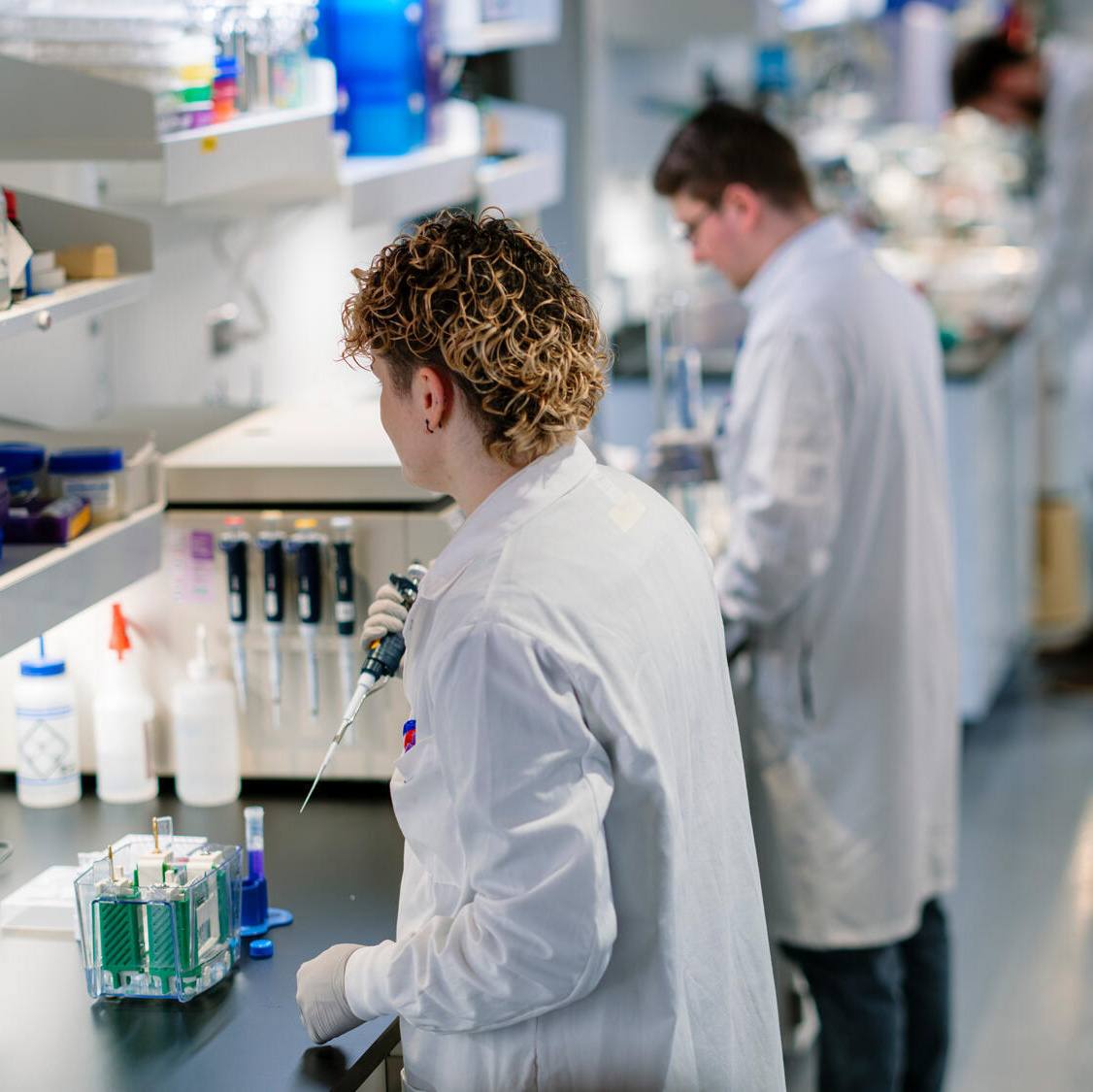-
Research
Exploring the link between the gut and multiple sclerosis
Could the bacteria in a person’s digestive system provide a clue about whether he or she may develop multiple sclerosis? This is a question that Mayo Clinic researchers asked when trying to unravel the causes of multiple sclerosis, a potentially debilitating condition that impacts a person’s nervous system. A Mayo Clinic study published in Scientific Reports demonstrates that patients with multiple sclerosis have a unique gut microbiome - the community of bacteria in the digestive system - when compared to that of healthy patients.

“Patients with multiple sclerosis have more gastrointestinal problems such as constipation and irritable bowel disease. Studies have shown that a lack of certain bacteria within the gut can impair the immune system and may predispose a patient to develop inflammatory diseases like multiple sclerosis. Therefore, we wanted to compare the gut bacteria from patients with multiple sclerosis to the gut bacteria of healthy individuals. Our findings show that there is a connection that needs to be explored further,” says Nicholas Chia, Ph.D. , one of the study investigators and associate director of the Mayo Clinic Center for Individualized Medicine Microbiome Program.
Impact on patient care
Approximately 85 percent of patients who experience symptoms from multiple sclerosis have recurring episodes. While there is currently no cure for multiple sclerosis, there are treatments to manage symptoms.
While multiple sclerosis is thought to be caused by both genetic and environmental factors, the exact environmental factors that lead to the disease are unknown.
By identifying the role that gut bacteria plays in causing multiple sclerosis, researchers hope to develop new ways to detect the disease, treat symptoms and even prevent the disease from developing.
“Gut bacteria could be a key environmental factor, along with genetic factors, in causing a person to develop multiple sclerosis. Our study lays the groundwork for future research. Large scale research studies are needed to examine gut bacteria of multiple sclerosis patients at multiple time points and different stages of the disease, says Ashutosh Mangalam, Ph.D., assistant professor, Department of Pathology, University of Iowa and co-author of the study.
According to Dr. Mangalam, future studies will address questions such as:
- Do multiple sclerosis patients with disease relapses have a distinct gut microbiome compared to patients in remission?
- Are there certain types of gut bacteria which are present in either a lower or higher proportion in multiple sclerosis patients compared to healthy patients?
- Can gut microbiota profiling be used to identify bacterial markers that predict whether multiple sclerosis patients will relapse?
- Do changes in the gut microbiota in multiple sclerosis patients impact the effect of commonly used multiple sclerosis drugs, such as Copaxone, and beta-Interferons?
- Can multiple sclerosis patients be treated with the use of medications and/or changes in diet (prebiotics) to alter their gut microbiota in order to stop the progression or prevent the disease?
Learn more about the role of the microbiome in health and disease
- Mayo Clinic Center for Individualized Medicine Microbiome Program
- Study: are food and antibiotics linked to irritable bowel syndrome?
- Vaginal microbes point toward early detection and screening for endometrial cancer
- Probiotics and diet: learning the facts about gut health
- This diet’s for you: personalized nutrition to improve your health
- Microbiome: All You Need is Bugs
Learn more about precision medicine and join our community
Get the latest news from the Center for Individualized Medicine. Visit our blog, Facebook, LinkedIn or Twitter at @MayoClinicCIM.
Save the date for the next Individualizing Medicine Conference on Oct. 9-11, 2017.








